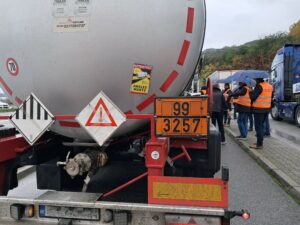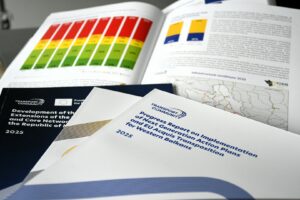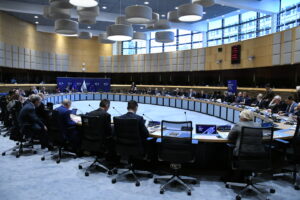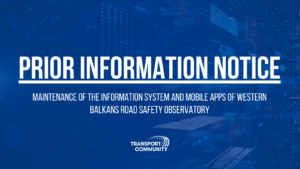BRUSSELS – On 3-4 December 2024, the Permanent Secretariat of the Transport Community and the European Commission’s Directorate-General for Mobility and Transport (DG MOVE) hosted a workshop in Brussels to discuss the revised Trans-European Transport Network (TEN-T) Regulation.
Bringing together nearly 70 transport experts and policymakers from the Western Balkans, Georgia, Moldova, and Ukraine, the event explored the revised TEN-T Regulation, its Key Performance Indicators (KPIs), and findings from the latest corridor studies.
The first day kicked off with welcoming remarks from Mr Matej Zakonjšek, Director of the Permanent Secretariat of the Transport Community, and Mr Eddy Liegeois, Head of Transport Networks at DG MOVE.
Mr Zakonjšek pointed out that the EU, the Western Balkans, Georgia, Moldova, and Ukraine will work hand-in-hand to build and achieve a sustainable and resilient network that will bring Europe closer together, allowing faster connections, enhanced trade, and better standards.
Participants were then introduced to the key changes in the TEN-T Regulation and focused on KPIs across different transport modes.
Experts from DG MOVE presented new KPIs for rail, road, waterborne, and urban transport, explaining how these tools will monitor and improve the efficiency, sustainability, and connectivity of Europe’s transport networks. Interactive Q&A sessions provided the participants with an opportunity to engage with the speakers and discuss the implications of these updates.
The second day focused on the findings from corridor studies related to the Western Balkans-Eastern Mediterranean and Rhine-Danube Core Corridors. Presentations explored the performance and potential of rail, road, and waterborne transport in these regions, with insights from the Transport Community Secretariat and consultants.
Discussions underscored the importance of strategic investments, cross-border collaboration, and prioritisation of transport reforms to meet the new standards set by the TEN-T regulation. The workshop reaffirmed the commitment of the EU, regional partners, and observing participants to building a unified transport network. With new tools and strategies in place, the revised TEN-T Regulation promises to bring Europe closer together, ensuring that transport systems are efficient, green, and future-ready.














